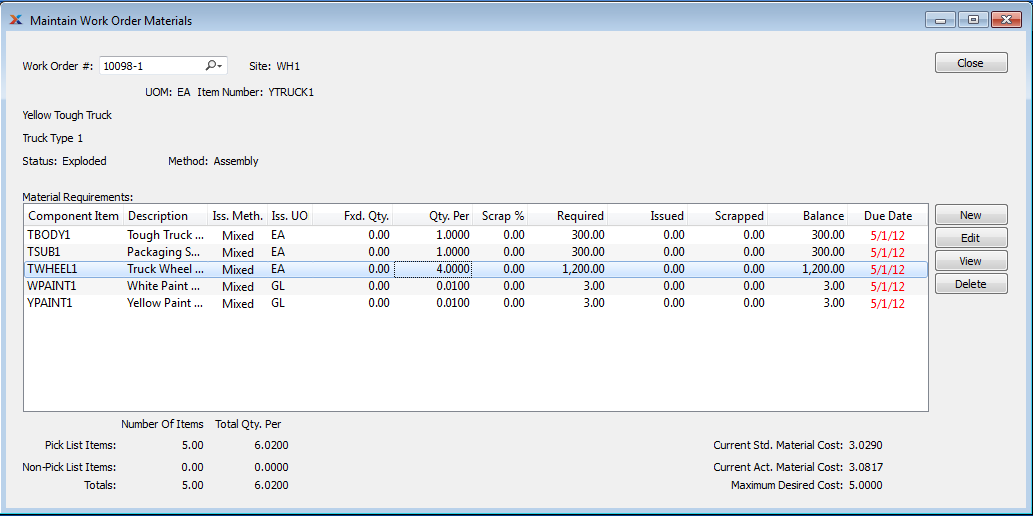
|
xTuple ERP Reference Guide |
To maintain Work Order Material Requirements, select the "Maintain Work Order Material Requirements" option. The following screen will appear:

If you are using the "Substitute" option found on the right-click menu, keep in mind that this utility applies only to BOM-defined Substitutions, as specified on the Bill of Materials for the Item in question.
When maintaining Work Order Material Requirements, you are presented with the following options:
Enter the Work Order Number of the Work Order whose Material Requirements you want to maintain.
Displays Site code automatically when Work Order Number is entered into "Work Order #" field.
Displays Item Number automatically when Work Order Number is entered into "Work Order #" field.
Inventory Unit of Measure.
Displays Work Order Status automatically when Work Order Number is entered into "Work Order #" field.
Indicates Work Order method is either assembly or disassembly.
Display lists Material Requirements associated with specified Work Order. If the due date is past due, the date will display in red.
Displays the total number of component Items which are also Pick List Items. Items may be marked as Pick List Items on the Item master.
Displays the total number of component Items which are not Pick List Items.
Displays the total number of component Items.
Displays the current Standard Cost for the component Items. The displayed Cost includes all Standard Costs associated with the component Items. Any non-material Costs associated with manufactured subcomponents (e.g., Labor and Overhead) would also be included in this total.
Displays the current Actual Cost for the component Items. The displayed Cost includes all Actual Costs associated with the component Items. Any non-material Costs associated with manufactured subcomponents (e.g., Labor and Overhead) would also be included in this total.
Displays the maximum desired Cost for the component Items. The maximum desired Cost is defined on the Item master. It provides a visual guide to help determine whether component Item Costs—either Standard or Actual—have exceeded the maximum desired Cost.